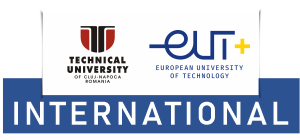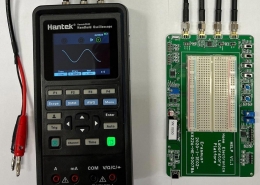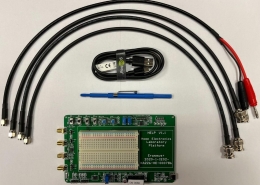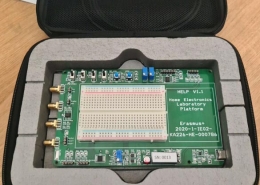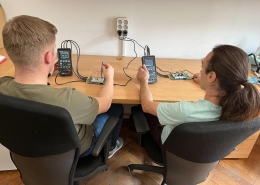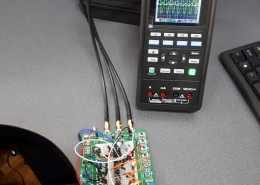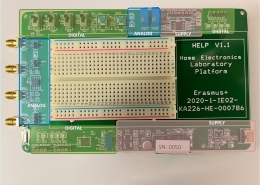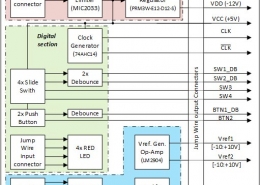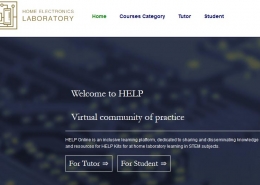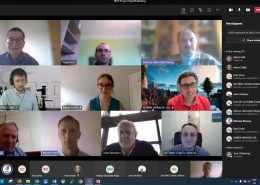The HELP KIT consists of an electronic board and the Hantek 2D72 portable instrument. The latter is a compact, stand-alone handheld device that provides a 2 Channel Oscilloscope, an Arbitrary Waveform Generator with ±10V maximum amplitude and a Digital Multimeter.
The HELPKIT V1.1 electronic board developed by the Technical University of Cluj-Napoca comprises not only the usual breadboard and the required wires and cables, but also several functional blocks that greatly expand the range of experiments students can perform: an on-board Power Supply that takes in a USB-based 5V voltage and provides ±12V symmetrical supply lines, a TTL 5V Clock Generator with adjustable frequency, a power amplifier that takes in the 2V signal generated by the Hantek instrument and gain it up to 10V; DC reference voltage generators with adjustable voltage within the ±10V range, de-bounced switches, LED drivers, etc. The TUC-N team has designed the board, then implemented and tested 80 such boards, that were delivered to students of the four HELP partner Universities.
HELP Courses – Flipped lab learning materials (HELP Courses) will be prepared and their impact evaluated in at least 8 courses in each academic year. The innovation in the courseware will take advantage of the flexibility of the home laboratory environment to engage and challenge students in the solution of authentic but achievable problems. The problem-based learning (PBL) approach, that requires significand laboratory time, will be adopted.
HELP ONLINE – is an inclusive learning platform, dedicated to sharing and disseminating knowledge and resources for using the education packs. It will offer guides, case studies and support resources for using the technology. It will include educational webinars, both live and recorded, designed to share knowledge and expertise for using the HELP KITs for various laboratory activities. Laboratory projects that are carried out on the HELP KITs will also be shared on the site as ‘Project Showcases’. A forum space will be available.
